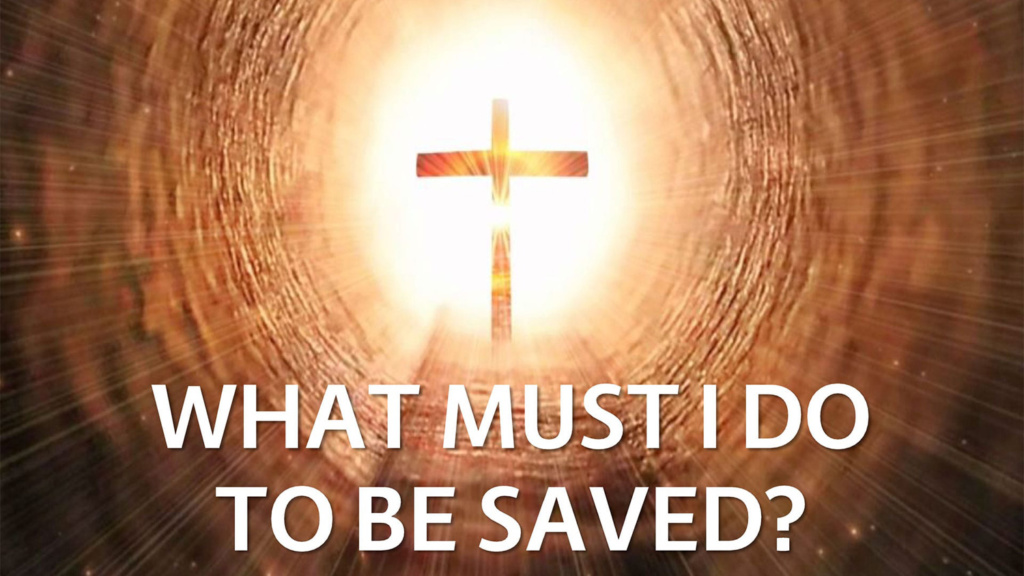A Christian is a person that associates himself with and accepts Jesus Christ as his Lord and Savior. This is where the name originates. Followers of Jesus Christ were first called Christians in Antioch which is noted in the book of Acts 11:26. Over time the term has lost its significance and is often used of someone who is simply religious and has high moral values but who may not be a true follower of Jesus Christ. Many believe they are Christians simply due to the fact that they go to church or their parents made them go to church or because they live in a Christian nation (sometimes called “cultural Christians – more on this below). But going to church, serving those less fortunate than you, or being a good person does not make you a Christian. There are tens of thousands if not millions of people today who profess to be Christians but are not true followers of Jesus Christ. a Christian is someone who has been born again by God (John 3:3; John 3:7; 1 Peter 1:23) and has put faith and trust in Jesus Christ. Ephesians 2:8 tells us that it is “…by grace you have been saved, through faith—and this not from yourselves, it is the gift of God.” Their unrighteous desires begin to change due to the work of the Holy Spirit working in them.
When someone says “I gave my heart to Jesus when I was young. Then I became involved in robbery, drugs, rape, murder, pornography and adultery. I was filled with greed, hatred and anger but all the time I knew the Lord and gave my heart back to Him when I was forty years old.”
That statement sounds ridiculous but many who call themselves Christians may believe this. The late pastor D. James Kennedy, of Coral Ridge Ministries, made a similar observation by stating, “The vast majority of people who are members of churches in America today are not Christians. I say that without the slightest fear of contradiction. I base it on empirical evidence of twenty-four years of examining thousands of people.”
A. W. Tozer made a similar statement, “It is my opinion that tens of thousands, if not millions, have been brought into some kind of religious experience by accepting Christ and they have not been saved.”
How do you know you have been saved? In John Chapter 3, Jesus tells Nicodemus that “he must be born again”. Nicodemus took this to mean some sort of physical action or literal rebirth. Jesus was simply referring to a spiritual rebirth. This is where the term “born again Christian” comes from. Its a moment where the Holy Spirit dwells or lives in a person at the moment of conversion. This means you are controlled by the Holy Spirit and you are no longer controlled by your old sinful nature (Rom 8:9). This begins a journey of turning away from sin and beginning to worship and serve the Lord. True Christians will understand the importance of reading God’s Word daily, which shows not only how we can be saved from our sins, but also
how we may be equipped to serve God and how to obtain TRUE success in life (2 Timothy 3:17; James 1:25).
True Christians will walk in the light and obey God’s commands, for “God’s love is truly made complete” in those who obey His Word (1 John 2:5).
A false conversion is no conversion at all. A false conversion may look like a true, Spirit-caused conversion, but it is not. The reasons for false conversions are varied. Sometimes the person experiencing a false conversion doesn’t even realize it. At other times, there is intentional deception on his/her part.  Not everyone who claims to have been converted has, in fact, been converted.
Not everyone who claims to have been converted has, in fact, been converted.
Just as those trained to recognize counterfeit money become intimately acquainted with the real thing, in order to detect a false conversion, it is necessary to first know what true Christian behavior looks like. We do this by studying and knowing intimately God’s Word. We learn from the Parable of the Weeds in Matthew 13:24–30 that Satan works to deceive the church by mingling his children with God’s children, often making it difficult for believers to discern the true from the false. The more we are familiar with Scripture, the easier it will be for us to detect the true Christians from the false converts. Many today make the mistake of judging Christianity by the actions of those false converts but God’s word tells us how to know those who truly love Him.
I recall listening to man who had converted to Islam from Christianity. During this conversation, he talked about how he was raised by Christian parents and that he went to Church every Sunday. As he grew older, he began to have questions about Christianity that his parents and congregational priest had difficulty answering. To make a long story shorter he decided to convert to Islam as an adult after having conversations with someone who was a follower of Islam. When I first heard this conversation, my first thought was that he never was a true follower of Christ. If he was, why would he choose to trade following Jesus; the Creator of the Universe for a profit called Mohammed who was a man? Additionally, he never expressed any form of conversion as a Christian which means he was more of a “cultural” Christian than a true follower of Christ. A Cultural Christian is someone who wears the label of a Christian which has more to do with family background and upbringing more than having a personal conviction that Jesus is Lord. Cultural Christianity is more social than spiritual. A cultural Christian identifies with certain aspects of Christianity, such as the good works of Jesus, but rejects the spiritual aspects required to be a biblically defined Christian. Some people consider themselves “Christians” because of family background, personal experience, country of residence, or social environment. Others identify as “Christian” as a way of declaring a religious affiliation, as opposed to being “Muslim” or “Buddhist.” One example of this would be the famed scientist and atheist Richard Dawkins who refers to himself as a “cultural Christian” because he admires some of the ceremonial and philanthropic aspects of Christianity. Dawkins is not born again; he simply sees “Christianity” as a label to use.
Repentance is another evidence of true conversion. We must recognize that we are natural born sinners that need forgiving and cleansing by our Savior Jesus Christ.  We carry the seed and nature of Adam. When we are saved we will have evidence of repentance. We no longer live for ourselves; rather, we live for the One who died for us, sacrificing our desires and ambitions and replacing them with those of Christ. We will never be completely victorious in our Christian walk (1 John 1:8); however, Christians will not repeatedly engage in sinful behavior, as “no one who is born of God will continue to sin, because God’s seed [nature] remains in him” (1 John 3:9). This new nature exhibits the habitual character of righteousness produced by the Holy Spirit (Galatians 5:22–23). To clarify, this does not mean that we stop sinning after we are saved. It means that through the conviction and help of the Holy Spirit we sin less as we grow in our walk with Christ. Our desire to sin is replaced by the desire for righteousness!
We carry the seed and nature of Adam. When we are saved we will have evidence of repentance. We no longer live for ourselves; rather, we live for the One who died for us, sacrificing our desires and ambitions and replacing them with those of Christ. We will never be completely victorious in our Christian walk (1 John 1:8); however, Christians will not repeatedly engage in sinful behavior, as “no one who is born of God will continue to sin, because God’s seed [nature] remains in him” (1 John 3:9). This new nature exhibits the habitual character of righteousness produced by the Holy Spirit (Galatians 5:22–23). To clarify, this does not mean that we stop sinning after we are saved. It means that through the conviction and help of the Holy Spirit we sin less as we grow in our walk with Christ. Our desire to sin is replaced by the desire for righteousness!
Keep in mind that conversion is not like a flu shot. ‘Oh, I did that. I repented. I believed.’ The question is, are you continuing to repent of sin? Are you continuing to believe? Because He who began a good work in you will finish it!
Jesus teaches that the road that leads to eternal life is narrow and that only a few find it (Matthew 7:13–14).
The broad road with the wide gate, on the other hand, is the one that leads to destruction, and we see that “many” will take this path.  And many who claim to be converted Christians will never leave the broad
And many who claim to be converted Christians will never leave the broad
road with its worldly enticements. They desire to live an easy Christianity that makes few demands on them, yet when “trouble or persecution comes because of the word” they quickly fall away (Matthew 13:21). Additionally, they produce little, if any, fruit. True believers know that faith in Christ profoundly changes one’s life and will cause us to produce much fruit for God’s glory. And, ultimately, fruit is the test
of true salvation, and this includes holiness (Romans 6:22), Christian character (Galatians 5:22–23), good works (Colossians 1:10), winning others to Christ (Romans 1:13), sharing what we have (Romans 15:25–28; Hebrews 13:16), and praising God (Hebrews 13:15). As Christ said, “By their fruit you will recognize them. . . . A good tree cannot bear bad fruit and a bad tree cannot bear good fruit” (Matthew 7:16, 18).
Truly converted sinners have trusted Christ alone and seek to become more and more Christlike all the time. Those who claim to be Christians should display the characteristics of true Christians: sound doctrine,
obedience to God’s Word, and love. Jesus said that “…..out of the abundance of the heart, the mouth will speak (Luke 6:45). The things we say are evidence of what’s in our hearts. Cursing, negativity, accusations, and gossiping are signs that our hearts are not right. Jesus calls us to speak the truth in love which runs contrary to our world that says we should “Say it like it is”. They should unashamedly work to spread the good news of the gospel, as we are called to do (Matthew 28:19–20), knowing well that they might be mocked and ridiculed by many in these increasingly secular times. And although false Christians may sometimes be able to deceive us, they cannot deceive God, as nothing in all creation is hidden from His sight. Everything is uncovered and laid bare before the eyes of Him to whom we must give account (Hebrews 4:13). At the end of the age, God will separate the true from the false Christians.
Works Cited List:
The Bible. “Biblia by Faithlife.” 1 Mar 2022, www.biblia.com.
Standridge, Jordan. “4 Characteristics of a False Convert”. Crosswalk.com, 25 Feb 2022, https://www.crosswalk.com/church/pastors-or-leadership/4-characteristics-of-a-false-convert.html
Comfort, Ray. “True and False Conversion”. Living Waters Ministries, 15 Jan 2022, https://www.livingwaters.com/true-and-false-conversion/


Those are some tough but truthful and necessary words.